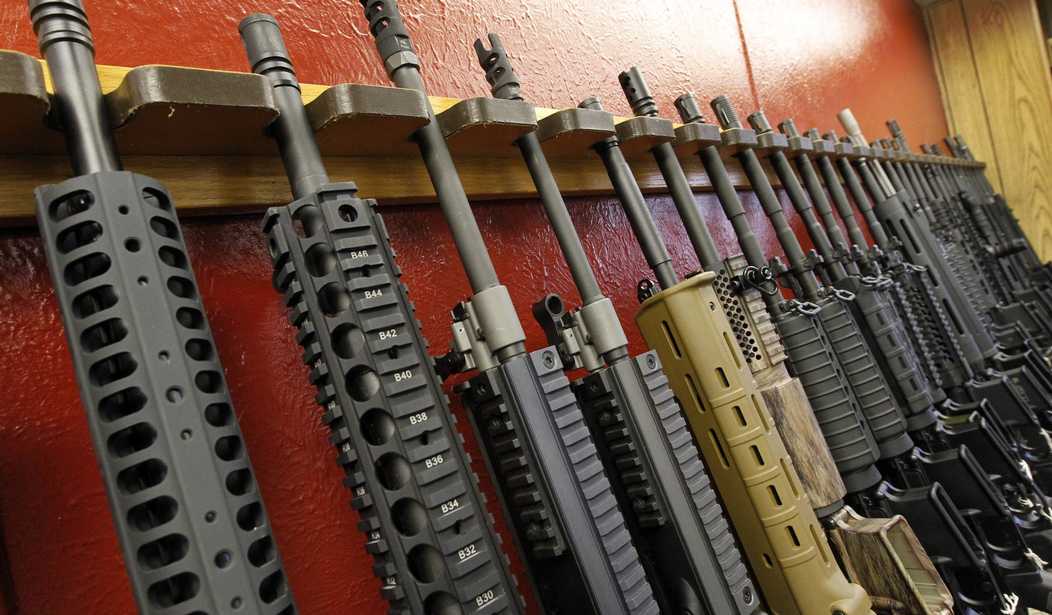I understand there are some people who don’t like AR-15s. They see these guns that look an awful lot like what our troops use and get uncomfortable. They see people traipsing around the woods or our communities with them, often espousing what they think are extremist points of view, making them even more uncomfortable.
So, they want AR-15s banned. After all, then no one could get such weapons, and extremists wouldn’t be as much of a threat anymore.
And every so often, someone thinks they’re clever enough to find a loophole – that the Second Amendment actually allows banning such firearms.
Gun advocates insist that the AR-15 is protected by the Second Amendment. This is not true – yet.
Neither the law nor the Second Amendment prevents Congress from banning such weapons. The obstacle is not just public opinion — polls show that far more people support such a ban than oppose it — but failure of political will before a powerful gun lobby and donors, a polarized Congress and a divided and fearful nation in thrall to the Cult of the Second Amendment.
Justice Clarence Thomas does not mention the AR-15 in his June 23 majority Supreme Court opinion in New York State Rifle & Pistol Association v. Bruen. This most expansive interpretation yet of the Second Amendment strikes down restrictions on the ability to carry guns outside the home in New York and five other states. The AR-15 also goes unmentioned in the bipartisan bill signed into law June 25 – the first major gun legislation in nearly 30 years.
…
Gun advocates commonly cite District of Columbia v. Heller, the 2008 case authored by Justice Antonin Scalia. That opinion, which Thomas mentions frequently in Bruen, struck down the District’s banning possession of all handguns by non-law enforcement officials. That law required that owners of firearms of other kinds keep them unloaded, disassembled or locked when not located at a business place or while being used for lawful recreational activities.
…
However, the Heller opinion, far from protecting a weapon like the AR-15, made clear that such a weapon could not only be regulated but banned once again. Heller specifically affirmed the National Firearms Act’s restrictions on machine guns and sawed-off shotguns, concluding that the Second Amendment does not protect “those weapons not typically possessed by law-abiding citizens for lawful purposes such as short-barreled shotguns.”
Heller makes it clear that the Second Amendment, like most rights, is not unlimited and does not grant the right to keep and carry any weapon in any manner for whatever purpose.
But that right there is where the author screws up. See, he’s a lawyer, so he figures he knows the law. And I’m not, so he probably knows it far better than I do.
Where he makes his mistake, though, is in his lack of understanding about firearms in a far more general sense.
What he leaves out is that the Heller decision permitted the banning of guns not “in common use.” This is why machine guns could remain banned. I disagree with that interpretation by Justice Scalia and figure it was to make the ruling a bit more politically palatable, but my agreement or disagreement changes nothing.
Yet that phrase, “in common use,” matters with regard to the AR-15.
That gun is one of the most popular firearm models in the country. Millions of them are sold every year. An estimated 20 million of them are in circulation right now.
Maybe it’s just me, but that sure sounds like they’re in common use.
See, the author doesn’t like AR-15s, so he presents his interpretation. It misrepresents what Scalia actually wrote so badly that one can’t help but believe it’s intentional, especially since the author is an attorney who should not only understand what Scalia said but knows how to twist things from a legal standpoint.
I’m sorry, but this is just a reinterpretation of the tired argument that frankly ignores a large part of the Second Amendment. You know, that whole “shall not be infringed” thing?
Sadly typical, unfortunately.








